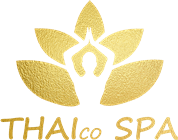- Winter therapies
- Services
- Classic Massage
- Asian Massages
- Rituals
- Couple Rituals
- Water Therapies
- Facial Treatments
- All Treatments
- OXYGENEO facial treatments
- Facial Treatment For Problem Skin
- Facial Treatment For Dehydrated Skin
- Facial Treatment for Cuperose/Rosacea Affected Skin
- Facial Treatment - Sono Beauty Lifting
- Facial Treatment - Skinjection
- Facial Treatment - Extreme Rejuvenation
- Complex H Treatment for Expression Wrinkles
- Detox
- A day at the SPA
- Gift Card
- SPA parties
- Corporate
- Subscription
- Locations
- Contact

Prenatal massage is a form of therapy that involves using massage movements to help pregnant women feel more comfortable and relaxed during pregnancy. It can be a wonderful way to reduce the stress and muscle tension associated with pregnancy and can provide many benefits for mother and baby.
One of the biggest benefits of prenatal massage is reduced stress and anxiety. During pregnancy, women often experience many hormonal and emotional changes, and massage can help reduce levels of cortisol, a hormone associated with stress. It can also help increase levels of serotonin and dopamine, two neurotransmitters that are involved in well-being and happiness.
Prenatal massage can also be beneficial for the mother's physical health. For example, it can help reduce back and hip pain, which are common during pregnancy. It can also improve blood circulation and help reduce swelling and cramping.
In addition to the benefits for the mother, prenatal massage can also have benefits for the baby. For example, it can help improve blood and oxygen circulation to the fetus, which can help it grow and develop healthily.
It is important to note that prenatal massage should be done by a therapist specialised in this type of massage. The therapist must have knowledge and experience in the field of prenatal massage and be able to adapt the technique of massage according to the needs and health status of each pregnant woman.
Overall, prenatal massage can be a great way to improve health and well-being during pregnancy. However, pregnant women should always discuss with their doctor before starting any form of therapy, including prenatal massage. This can help ensure that massage is safe and appropriate for their individual needs and overall health.
During prenatal massage sessions, the therapist will use specially adapted massage techniques to take into account the physiological and anatomical changes specific to pregnancy. For example, the massage can be done in different positions to ensure the comfort of the pregnant woman, such as on her side or on a special massage table with an opening for the abdomen. Also, the pressure applied by the therapist will be adjusted to avoid excessive pressure or discomfort in sensitive areas.
Another important benefit of prenatal massage is that it can help prepare the body for childbirth. For example, certain massage techniques can help relax pelvic muscles and improve flexibility, which can make childbirth easier and reduce pain.
In addition, prenatal massage can also be useful after birth. For example, it can help reduce postnatal discomfort, such as back and hip pain, and can help relax and reduce stress in the postpartum period.
In conclusion, prenatal massage can be a wonderful way to reduce the stress and muscle tension associated with pregnancy and provide many benefits for mother and baby. However, pregnant women should always discuss with their doctor before starting any form of therapy, including prenatal massage, and choose a therapist who specialises in this type of massage. This can help ensure that massage is safe and appropriate for their individual needs and overall health.
Schedule a Prenatal Massage or give a gift card with a prenatal massage
-
[insta-gallery id="0″]
-
Instagram THAIco SPA
Customer opinions
-


